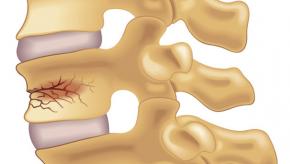All News
Combo Methotrexate and Leflunomide Safety in RA
Methotrexate and leflunomide (LEF) are the most widely prescribed DMARDs worldwide; yet biologic DMARDs are the newest and best selling agents for rheumatoid arthritis worldwide.
Read ArticleCardiovascular Prevention Lacking in Rheumatoid Arthritis
An increased cardiovascular disease (CVD) risk in rheumatoid arthritis is well known and feared but an RA cohort study suggests that preventive medication use in RA patients lags behind that seen in diabetes mellitus (DM).
Read ArticleCDC Reverses Stance on Masks
Today the Centers for Disease Control and Prevention (CDC) said that masks should be used by those vaccinated against the coronavirus in public indoor spaces in parts of the country where the virus is surging.
Read ArticleUS News & World Report Ranks Best Rheumatology Hospitals
Medscape has published the annual U.S.
Read ArticleRheumatoid Poor Outcomes Not Linked to Comorbidity
Disease activity leads to poor outcomes; but does comorbidity add to this? A recent analysis suggests that while comorbidities do not affect long-term, functional outcomes, sociodemographic factors do affect outcomes in rheumatoid Arthritis (RA).
Read ArticleDMARD Effects on COVID-19 Outcomes
Sparks and colleagues have published data from the Global Rheumatology Alliance noting that among rheumatoid arthritis (RA) patients afflicted with COVID-19 infection, there was little influence of their baseline biologic or targeted synthetic (b/ts) disease-modifying antirheumatic drug
Read ArticleFracture Risk with Low Dose Steroid
A large RA cohort analysis shows that low-dose glucocorticoid therapy in rheumatoid arthritis (RA) patients may carry an increased risk of vertebral osteoporotic (OP) fractures.
Read ArticleTofacitinib Efficacy in Ankylosing Spondylitis
Deodhar and colleagues have published the results of a study showing that in adult patients with active ankylosing spondylitis (AS), oral tofacitinib was effective (versus placebo) and is safe.
Read ArticleGrowing Cannabis Use in Arthritis Patients
The National Databank for Rheumatic Diseases reports a significant increased in cannabis use amongst arthritis patients between 2014-2019, suggesting patients are more frequently engaged in self-management of pain and the unmet need for a pain relieving, opioid-sparing alternative.
Read ArticleNew-Onset IBD and IL-17 Inhibitors: What Is the Risk?
Patients with inflammatory/autoimmune diseases who initiated treatment with interleukin (IL)-17 inhibitors did not have a higher risk for the development of inflammatory bowel disease (IBD), but only after taking into account the severity of their underlying disease, French investigators reported
Read ArticleFDA Approves IVIG in Dermatomyositis
The U.S. Food and Drug Administration (FDA) has approved Octagam 10% [Immune Globulin Intravenous (Human)], as the first and only intravenous immunoglobulin (IVIg) formulation to be approved for adult dermatomyositis (DM).
Read ArticleCanakinumab Fails to Improve COVID-19 Survival
JAMA has published the findings of trial wherein the anti–interleukin-1β antibody canakinumab (CAN) failed to improve survival in patients hospitalized with severe COVID-19.
Read ArticleACR/Vasculitis Foundation Guideline for Giant Cell Arteritis and Takayasu Arteritis
The ACR and the Vasculitis Foundation have published their evidence-based recommendations and expert guidance for the management of GCA and Takayasu arteritis. These recommendations address a variety of clinical questions and scenarios including diagnostic testing, imaging, treatments, and surgical interventions. Recommendations for GCA and TAK include support for the use of glucocorticoid-sparing immunosuppressive agents and the use of imaging to identify large vessel involvement. Recommendations for TAK include the use of glucocorticoids as initial therapy.
Read ArticleImpact of Nail Psoriasis on Psoriatic Arthritis
Mease and colleagues have shown that psoriatic arthritis (PsA) patients with nail involvement have worse disease and outcomes than those without nail psoriasis.
Read ArticleACR/Vasculitis Foundation 2021 Guidelines for ANCA–Associated Vasculitis
Chung et al have published the 2021 treatment guielines for the management of antineutrophil cytoplasmic antibody–associated vasculitis, including granulomatosis with polyangiitis, microscopic polyangiitis, and eosinophilic granulomatosis with polyangiitis. These guidelines are put forth by the ACR and the Vasculitis Foundation as benchmark guidance to assist health care professionals in managing AAV.
Read ArticleSlow Steroid Tapering Succeeds in SLE
Gradual withdrawal of glucocorticoids was successful among patients with systemic lupus erythematosus (SLE) after 2 years of clinically quiescent disease, without an increased likelihood of flares, Canadian researchers reported.
Read ArticlePotential Birth Defects with Hydroxychloroquine
Hydroxychloroquine (HCQ) is one of the safest meds used in rheumatology, but there is new claims data suggesting a small increase in the risk of malformations associated with first-trimester HCQ use.
Read ArticleIs Pre-Clinical Spondyloarthritis a Real Risk?
A study of first-degree relatives (FDRs) of HLA-B27-positive axial spondyloarthritis (axSpA) patients shows clinical or imaging features of spondyloarthritis in up to 32% subjects, regardless of HLA-B27 status.
Read ArticleRare Myocarditis Risk following COVID-19 Vaccine
MMWR review of the risk of myocarditis and pericarditis reports a June 23, 2021 recommendation by the Advisory Committee on Immunization Practices that the benefits of COVID-19 vaccination clearly outweighed the risks of myocarditis after vaccination.
Read ArticleICYMI: RheumNow Podcast – Tofacitinib Safety Concerns
Dr. Jack Cush reviews and discusses the news and journal reports from the past week on RheumNow.com.
Read Article





















